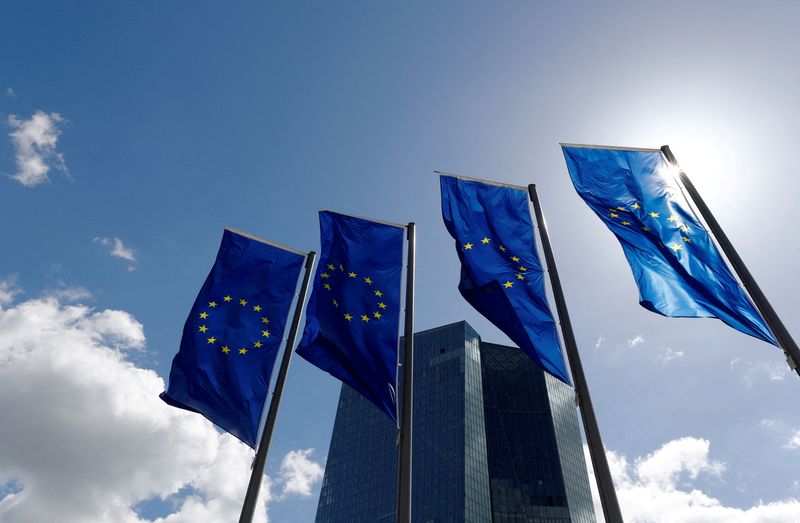FRANKFURT (Reuters) - The European Central Bank cut interest rates for the fourth time this year on Thursday and kept the door open to further easing ahead as inflation closes in on its goal and the economy remains weak.
The central bank for the 20 countries that share the euro reduced the rate it pays on bank deposits, which drives financing conditions in the bloc, to 3.0% from 3.25%. It was at a record 4.0% only in June.
It also signalled that further cuts are possible by removing a reference to keeping rates "sufficiently restrictive", economic jargon for a level of borrowing costs that curbs economic growth.
"Financing conditions are easing, as the Governing Council’s recent interest rate cuts gradually make new borrowing less expensive for firms and households," the ECB said. "But they continue to be tight because monetary policy remains restrictive and past interest rate hikes are still transmitting to the outstanding stock of credit."
There is no universal definition of what constitutes a restrictive rate but economists generally see neutral territory, which neither fuels nor cools growth, at between 2% and 2.5%.
With Thursday's decision, the ECB also cut the rate at which it lends to banks for one week - to 3.15% - and for one day, to 3.40%.

These facilities have barely been used in recent years as the ECB has supplied the banking system with more reserves than it needs via massive bond purchases and long-term loans.
But they may become more relevant in the future as those programmes end. The ECB confirmed on Thursday it would stop buying bonds under its Pandemic Emergency Purchase Programme this month.